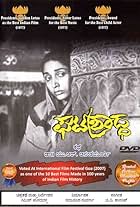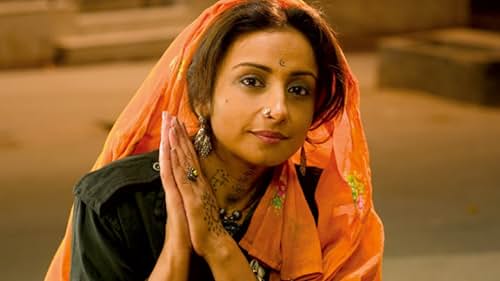
India’s Film Heritage Foundation (Fhf) is set to commemorate the centenary of Telugu cinema legend Akkineni Nageswara Rao with a countrywide film festival.
Rao, known for his versatility, worked in the Telugu, Tamil and Hindi-language cinema industries over a 71-year career spanning more than 250 movies. He was a recipient of numerous accolades, including the Padma Vibhushan and Dadasaheb Phalke Award, India’s highest cinema honor.
Titled “Anr 100 – King Of The Silver Screen,” the event will showcase 10 restored classics from Sept. 20-22, across 25 Indian cities.
The retrospective, coinciding with Rao’s 100th birth anniversary on Sept. 20, will feature landmark Telugu films spanning six decades. Film aficionados can look forward to screenings of early classics like “Devadasu” (1953), “Missamma” (1955), and the mythological fantasy “Mayabazar” (1957). The 1960s will be represented by “Bharya Bharthalu” (1961), “Gundamma Katha” (1962), “Doctor Chakravarthi” (1964) and “Sudigundalu” (1968). The selection also includes later hits such as “Prem Nagar” (1971) and “Premabhishekam” (1981), concluding with...
Rao, known for his versatility, worked in the Telugu, Tamil and Hindi-language cinema industries over a 71-year career spanning more than 250 movies. He was a recipient of numerous accolades, including the Padma Vibhushan and Dadasaheb Phalke Award, India’s highest cinema honor.
Titled “Anr 100 – King Of The Silver Screen,” the event will showcase 10 restored classics from Sept. 20-22, across 25 Indian cities.
The retrospective, coinciding with Rao’s 100th birth anniversary on Sept. 20, will feature landmark Telugu films spanning six decades. Film aficionados can look forward to screenings of early classics like “Devadasu” (1953), “Missamma” (1955), and the mythological fantasy “Mayabazar” (1957). The 1960s will be represented by “Bharya Bharthalu” (1961), “Gundamma Katha” (1962), “Doctor Chakravarthi” (1964) and “Sudigundalu” (1968). The selection also includes later hits such as “Prem Nagar” (1971) and “Premabhishekam” (1981), concluding with...
- 9/4/2024
- by Naman Ramachandran
- Variety Film + TV


The title of Girish Kasaravalli's 1977 film "Ghatashraddha" is directly translated as "The Ritual," although the on-screen English title is "Ritual of Excommunication." Both titles reflect the bleak circumstances of the film's protagonist, even though "The Ritual" implies that women are abused and discarded as a matter of course. "Ghatashraddha" is a bleak tragedy about a woman named Yamuna (Meena Kuttappa) who lives with her religious schoolteacher father (Ramaswamy Iyengar) and who is already a widow at a young age. Yamuna is already seeing another man, also a schoolteacher, although their affair is secret ... as is her pregnancy. The only person who treats Yamuna with any friendliness is a young boy named Naani (Ajith Kumar), who serves as a witness to the story.
When her father goes out of town to raise money for his school, everything falls apart. The school deteriorates, gossip begins to spread, and Yamuna becomes an outcast.
When her father goes out of town to raise money for his school, everything falls apart. The school deteriorates, gossip begins to spread, and Yamuna becomes an outcast.
- 2/28/2024
- by Witney Seibold
- Slash Film
A Still from Kurmavatara
The preoccupations and the creative base of all the films of Girish Kasaravalli lie not only in capturing the tensions and anxieties of a community, but also in seeking ethical alternatives to the crises of an era. Many symbols are created in this process of capturing and seeking. The anxiety of each period of time gives birth to a conducive and correlating symbol. Such symbols that portray the spirit of the times are found in all films of Girish Kasaravalli. One can observe this from Ghatashraddha to Kurmavatara. In other words, a symbol which emerges in a specific period of time reveals the ideological, philosophical problems of that time. We must note that the symbols that appear before us are problematic ones. They are not emblems or unidimensional truths. Kurmavatara is a text which seeks to understand the inner self of Gandhi with openness.
This is...
The preoccupations and the creative base of all the films of Girish Kasaravalli lie not only in capturing the tensions and anxieties of a community, but also in seeking ethical alternatives to the crises of an era. Many symbols are created in this process of capturing and seeking. The anxiety of each period of time gives birth to a conducive and correlating symbol. Such symbols that portray the spirit of the times are found in all films of Girish Kasaravalli. One can observe this from Ghatashraddha to Kurmavatara. In other words, a symbol which emerges in a specific period of time reveals the ideological, philosophical problems of that time. We must note that the symbols that appear before us are problematic ones. They are not emblems or unidimensional truths. Kurmavatara is a text which seeks to understand the inner self of Gandhi with openness.
This is...
- 11/12/2012
- by N. Manu Chakravarthy
- DearCinema.com
Filmmaker Girish Kasaravalli who was conferred the Padmashri this year has started shooting his new project titled Koormavathaara. This film is based on a novel by Kannada writer Kum Veerabhadrappa.
The film will depict the changes witnessed in the country in the last six decades, according to Kasaravalli.
Koormavathaara is being produced by Basanth Kumar Patil, former president of the Karnataka Film Chamber of Commerce, who had produced Kasaravalli’s earlier films–Naayi Neralu and Kanasemba Kudureyanner.
Kasaravalli won the National Award for Best Film four times for — Ghatashraddha (1977), Tabarana Kathe (1986), Thaayi Saheba (1997) and Dweepa (2001).
The film will depict the changes witnessed in the country in the last six decades, according to Kasaravalli.
Koormavathaara is being produced by Basanth Kumar Patil, former president of the Karnataka Film Chamber of Commerce, who had produced Kasaravalli’s earlier films–Naayi Neralu and Kanasemba Kudureyanner.
Kasaravalli won the National Award for Best Film four times for — Ghatashraddha (1977), Tabarana Kathe (1986), Thaayi Saheba (1997) and Dweepa (2001).
- 11/16/2011
- by NewsDesk
- DearCinema.com

The fourth day of the 13th Mumbai Film Festival continued to enthral cinema buffs. Unprecedented numbers of film goers and cinema enthusiasts thronged the cinemas. Accompanying the audience for the movie screenings were celebrities such as Ashutosh Gowariker, Vishal Bhardwaj, Shabana Azmi, Makarand Deshpande, Divya Dutta, Sakshi Tanwar, Raj Zutshi, Brijesh Hirjee, Pravesh Rana, Onir, Satish Kaushik, Irawati Harshe and Aly Khan amongst many others. The star movie of the day was undoubtedly George Clooney's The Ides Of March which once again saw unprecedented numbers of audiences queue up for it. The star cast of Stanley Ka Dabba, which was screened at the festival were also present. In attendance were Raj Zutshi, Divya Dutta, Divya Jagdale and the magnificent kids. The surprise announcement of the film winning the best actor award at Children Young Audience Schlingel made here left them all overwhelmed. Divya Dutta shared how all of them...
- 10/17/2011
- by Bollywood Hungama News Network
- BollywoodHungama
When I landed at the theatre around noon, only Wrecked by Michael Greenspan had seats left. Adrien Brody finds himself a victim of a car crash in a dark, foreboding jungle. I felt it was too contrived, did not have enough punch, enough drama, enough, well, Deliverance.
The film ended quickly enough letting me attend a discussion on Independent Cinema. Speakers: Ian Bernie, Aijaz Khan, Sunil Doshi and Madhu Mantena moderated by Meenakshi Shedde. Sunil Doshi turned out to be the best speaker, giving out advice from the Pov of a solid, experienced businessman.
Walked into the theatre that was to play Girish Kasaravalli’s Ghatashraddha. They were testing the DVD. Left immediately. If it was going to be a blown up DVD and not the original print, it did not make much sense; I can catch the film on DVD anytime. The neighboring screen had John Stockwell’s The...
The film ended quickly enough letting me attend a discussion on Independent Cinema. Speakers: Ian Bernie, Aijaz Khan, Sunil Doshi and Madhu Mantena moderated by Meenakshi Shedde. Sunil Doshi turned out to be the best speaker, giving out advice from the Pov of a solid, experienced businessman.
Walked into the theatre that was to play Girish Kasaravalli’s Ghatashraddha. They were testing the DVD. Left immediately. If it was going to be a blown up DVD and not the original print, it did not make much sense; I can catch the film on DVD anytime. The neighboring screen had John Stockwell’s The...
- 10/17/2011
- by Devang Ghia
- DearCinema.com
Vidyarthy Chatterjee, who wrote on cinema for leading publications like The Statesman and The Economic Times for over three decades writes on Vastupurush by Sumitra Bhave and Sunil Sukhtankar, in which he saw the germs of a new Marathi cinema
“It is regional cinema that is at the cutting edge of new Indian films. It is evident that nowhere is the renegotiation of the Indian identity in this new age of consumerism being better analyzed than in the low budget regional cinema.”
Asha Kasbekar Richards
This writer fondly visualizes the day when the history of a rejuvenated Marathi cinema, circa 2002 onwards, comes to be written by a sensitive and intelligent film-lover, preferably someone to the language and culture born. Ideally, one of the first chapters of such an effort could be named ‘From Sumitra and Sunil’s stable’. One is speaking of the sociologist- turned- filmmaker Sumitra Bhave and her artistic collaborator,...
“It is regional cinema that is at the cutting edge of new Indian films. It is evident that nowhere is the renegotiation of the Indian identity in this new age of consumerism being better analyzed than in the low budget regional cinema.”
Asha Kasbekar Richards
This writer fondly visualizes the day when the history of a rejuvenated Marathi cinema, circa 2002 onwards, comes to be written by a sensitive and intelligent film-lover, preferably someone to the language and culture born. Ideally, one of the first chapters of such an effort could be named ‘From Sumitra and Sunil’s stable’. One is speaking of the sociologist- turned- filmmaker Sumitra Bhave and her artistic collaborator,...
- 6/21/2011
- by Vidyarthy Chatterjee
- DearCinema.com
IMDb.com, Inc. takes no responsibility for the content or accuracy of the above news articles, Tweets, or blog posts. This content is published for the entertainment of our users only. The news articles, Tweets, and blog posts do not represent IMDb's opinions nor can we guarantee that the reporting therein is completely factual. Please visit the source responsible for the item in question to report any concerns you may have regarding content or accuracy.
